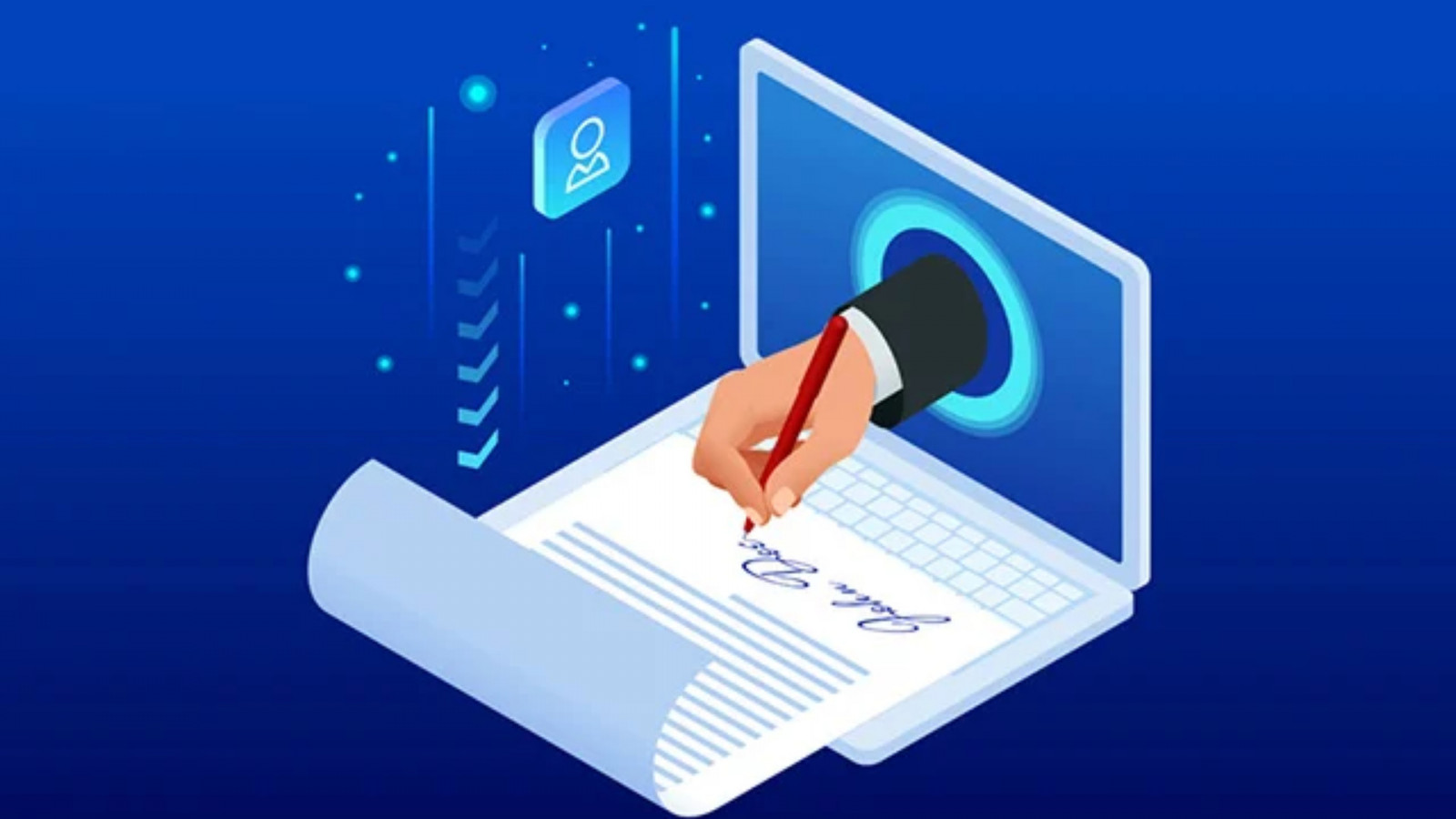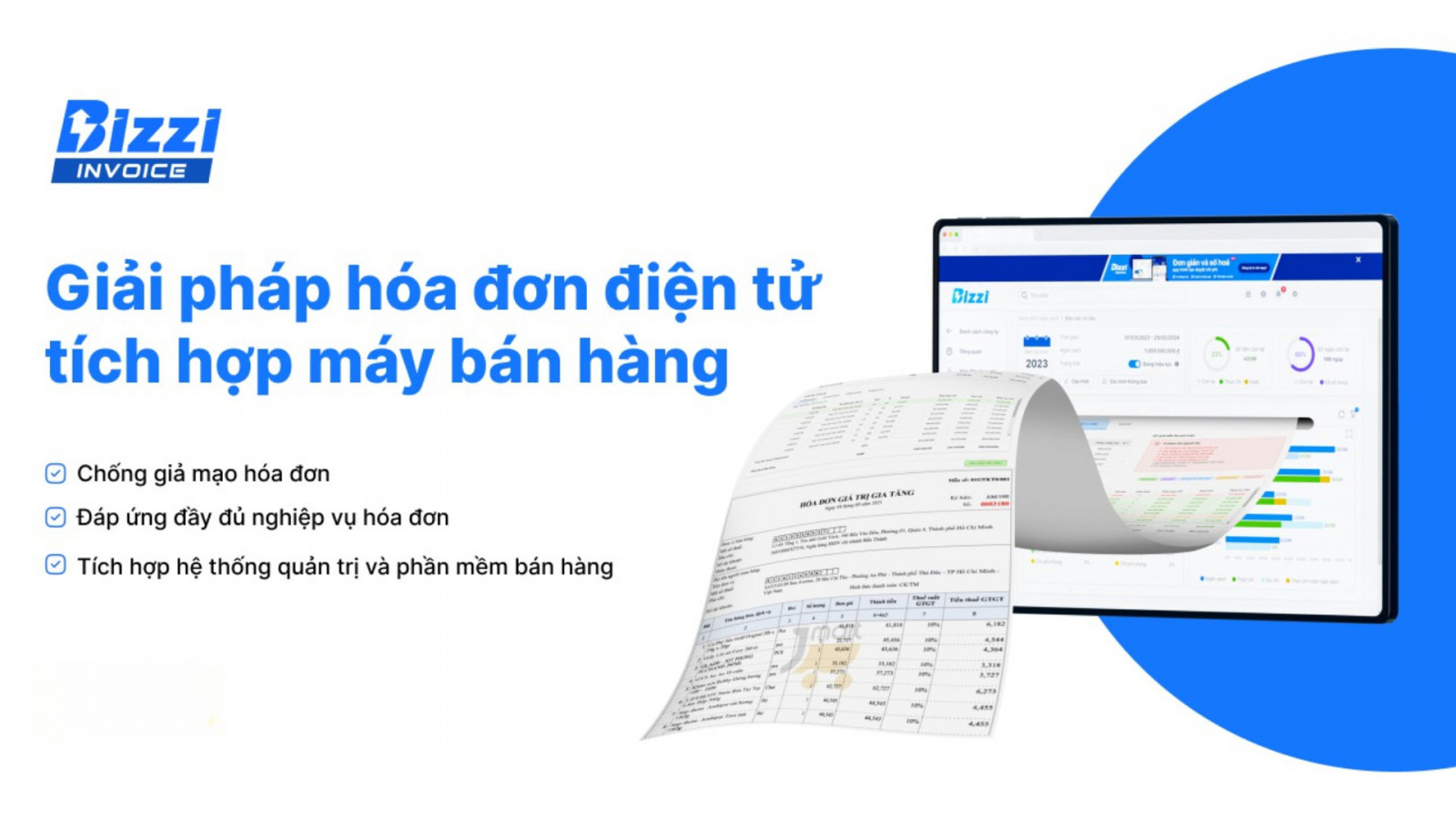How to issue electronic invoices for business households is a mandatory requirement, not only to comply with legal regulations but also to create transparency in transactions. This article provides step-by-step instructions, along with the latest legal regulations, to help business households avoid mistakes and legal risks.
In this article, Bizzi will provide you with the latest and most complete information on how to issue electronic invoices for business households. Bizzi will guide you step by step to effectively carry out this process, helping to optimize the process, save time, and ensure legal compliance.
In which cases must a business household use electronic invoices?
From July 1, 2022, most businesses are required to use electronic invoices., as prescribed in Decree 123/2020/ND-CP and Circular 78/2021/TT-BTC. However, there are still some exceptions that are allowed to use paper invoices from tax authorities for a certain period of time.
Cases where electronic invoices are required:
According to Article 6 of Circular 78/2021/TT-BTC, the following business households must use electronic invoices:
- Business households and individuals pay taxes according to the declaration method: Electronic invoices are required.
- Business households and individuals pay taxes according to the lump-sum method: Must use individual electronic invoices for each occurrence if required.
- Business households and individuals declare taxes each time they occur: Must use individual electronic invoices for each occurrence if required.
Cases where it is not mandatory to use electronic invoices:
Business households and individuals operating in areas with difficult and especially difficult socio-economic conditions can continue to use paper invoices from tax authorities for up to 12 months if they simultaneously meet the following conditions:
- Do not conduct transactions with tax authorities by electronic means.
- No IT infrastructure (computers, internet).
- No accounting software system.
- There is no electronic invoicing software to transmit data to buyers and tax authorities.
During this time, the tax authority will support businesses to convert to electronic invoices. Understanding the regulations will help businesses operate legally and avoid unnecessary risks.

How should businesses choose the form and time of issuing electronic invoices?
Business households that declare must issue electronic invoices with tax authority codes immediately upon sale of goods/service provision. Households that pay taxes on a lump sum or declare taxes on a per-transaction basis will request the tax authority to issue electronic invoices with codes for each transaction upon request.
Electronic invoice forms for each tax method
Below is a summary table of invoice forms applicable to each tax calculation method of business households:
| Tax calculation method | Applicable objects | Form of electronic invoice |
|---|---|---|
| Declaration Method | Revenue > 100 million/year or voluntary | Electronic bill have tax authority code (self-export via software). |
| Contract Method | Revenue ≤ 100 million/year | Electronic bill has a retail tax authority code on a case-by-case basis. |
| Tax declaration for each occurrence | Irregular Revenue | Electronic bill has a retail tax authority code on a case-by-case basis. |
Time to issue electronic invoices according to regulations
The timing of invoice issuance is a key factor in determining tax liability. According to Article 9 Decree 123/2020/ND-CP, this time is specified as the time of transfer of ownership or right to use goods, or the time of completion of the provision of services, regardless of whether payment has been received or not.
- Example with household declaration: A computer retailer must issue an invoice at the time of delivery of a computer to a customer.
- Example with contract household: A motorbike repair shop only needs to ask the tax authority to issue an invoice when a customer requests it to settle expenses.
Complying with regulations on form and timing not only helps businesses avoid legal risks but also builds credibility with customers.

Electronic invoice issuance process for business households to declare (Self-registration)
Business households that pay taxes by declaration method will proactively register and use electronic invoice software to issue invoices. The process includes 4 main steps:
- Step 1: Prepare infrastructure & Digital signature
- Device: Make sure your computer has a stable internet connection.
- Email: Have an official email address for dealing with the tax authorities.
- Digital signature: Register digital signature according to the tax code of the business household at licensed suppliers.
- Step 2: Select and register an electronic invoice provider
- Find out and choose a reputable e-invoice service provider that meets technical standards. You can refer to the article Compare electronic invoice software to make the right choice.
- Sign a contract and register to use their software.
- Step 3: Register to use electronic invoices with the Tax Authority
- Access the registered electronic invoice software, make a declaration to register for using electronic invoices according to Form 01/DKTĐ-HĐĐT (Appendix IA Decree 123/2020/ND-CP).
- Sign and send the declaration to the tax authority. Within 1 working day, the tax authority will send a notice of acceptance or non-acceptance via email.
- Once accepted, you must proceed to cancel any remaining paper invoices (if any).
- Step 4: Create and issue invoices on the software
- Log in into the electronic invoice software that has been granted an account.
- Create new invoice: Select the “Create new invoice” function, fill in all information about the buyer, goods, services, tax rates…
- Sign and issue: After checking the information, use the digital signature to sign and select “Issue invoice”. The software will automatically issue the tax authority code and send the data.
- To the buyer: Send issued invoices to customers via email or other electronic forms.

Process of issuing electronic invoices for households and each occurrence (Issued individually at the Tax Authority)
For business households paying lump-sum tax or tax on a per-occurrence basis, the process will be simpler and carried out directly with the tax authority when needed.
- Step 1: Prepare invoice application documents
- Set up Application for electronic invoice with tax authority code according to Form No. 06/DN-PSDT in Appendix IA issued with Decree 126/2020/ND-CP.
- Prepare documents proving the transaction such as contracts and acceptance records (if any).
- Step 2: Submit application and tax declaration
- Submit application (paper or electronic) to the directly managing Tax Department.
- At the same time, fully declare and pay all taxes (VAT, PIT) arising from that transaction.
- Step 3: Tax authority issues code and pays invoice
- After you complete your tax obligations, the tax authority will issue a code and create an electronic invoice on the tax industry system within the working day.
- You will receive a coded electronic invoice to send to the buyer.
Download Checklist Now for Free: To make sure you don't miss any steps, contact Bizzi to receive the "Checklist of steps to issue electronic invoices for business households" completely free of charge!

How to look up the status of issued electronic invoices
After issuing the invoice, you need to check to make sure the invoice is valid and recorded in the tax authority system. You can look it up by:
- Access Electronic invoice portal of the General Department of Taxation at the address: https://hoadondientu.gdt.gov.vn/.
- Enter information of the invoice to be looked up such as: Seller's tax code, Form number, Invoice symbol, Invoice number, Captcha code.
- Click “Search” and the system will return the status of the invoice (for example: “Invoice code issued”).
5 common errors when issuing electronic invoices and how to fix them
In the process of issuing invoices, errors are inevitable. Below are 5 common errors and how to handle them:
| Common errors | Solution |
|---|---|
| 1. Wrong name and address of buyer but correct tax code | Make a notice of error Form 04/SS-HĐĐT and send it to the tax authority, no need to make a replacement invoice. |
| 2. Wrong tax code, amount, tax rate, specification, quality | Create an adjustment invoice or replacement invoice. Refer to detailed instructions on How to adjust electronic invoices. |
| 3. Invoicing for fictitious transactions | Make a written agreement with the buyer and proceed. cancel electronic invoice has been established. |
| 4. Send invoices to multiple people | Recall wrongly sent invoices, send only to valid buyers. |
| 5. Digital signature error (not registered, expired) | Check the validity of the digital signature, make sure the digital signature has been registered with the tax authority. Contact the digital signature provider to renew if necessary. |
Important notes when issuing electronic invoices for business households
To ensure absolute compliance, businesses need to keep in mind the following points:
- Business households are not allowed to issue VAT invoices: According to regulations, business households pay tax directly on revenue, so they only use sales invoices, not value-added invoices.
- Enter the correct tax rate: VAT and PIT rates applicable to business households are clearly specified in Circular 40/2021/TT-BTC, for example: Distribution and supply of goods (1% GTGT, 0.5% TNCN); Services, construction without contract for materials (5% GTGT, 2% TNCN).
- Fill in the invoice content: According to Clause 5, Article 10 of Decree 123/2020/ND-CP, the invoice must have the full name, address, and tax code of the seller/buyer; name of goods and services, unit price, total amount, tax rate, and total payment.
- Invoice storage: Electronic invoices must be stored as prescribed for 10 years.
Bizzi – The optimal electronic invoice solution for business households
Choosing a reputable e-invoice solution provider is a key factor in helping businesses deploy and manage invoices effectively.
Bizzi provides electronic invoice solutions B-Invoice, built on a modern technology platform, fully meeting legal regulations such as Decree 123/2020/ND-CP and Circular 78/2021/TT-BTC.
This solution brings many benefits to businesses:
- Full service: Meet 100% business requirements from creating, issuing, adjusting, replacing, and canceling invoices.
- Comprehensive management: Allows you to manage and report invoices anytime, anywhere, on any device.
- High Security: Apply multi-layer security technology, ensuring absolute data safety.
- Easy to integrate: Ready to connect with popular sales and accounting software, helping to synchronize data and increase performance.

Experience it today! Sign up for a free Bizzi trial to experience a simple and efficient e-invoicing process.
Thus, compliance with regulations and mastery of How to issue electronic invoices for business households not only helps businesses operate transparently and legally, but also optimizes accounting processes and manages revenue more effectively. To ensure proper implementation, businesses need to regularly update the latest regulations and choose a reputable e-invoice service provider.
See more:


